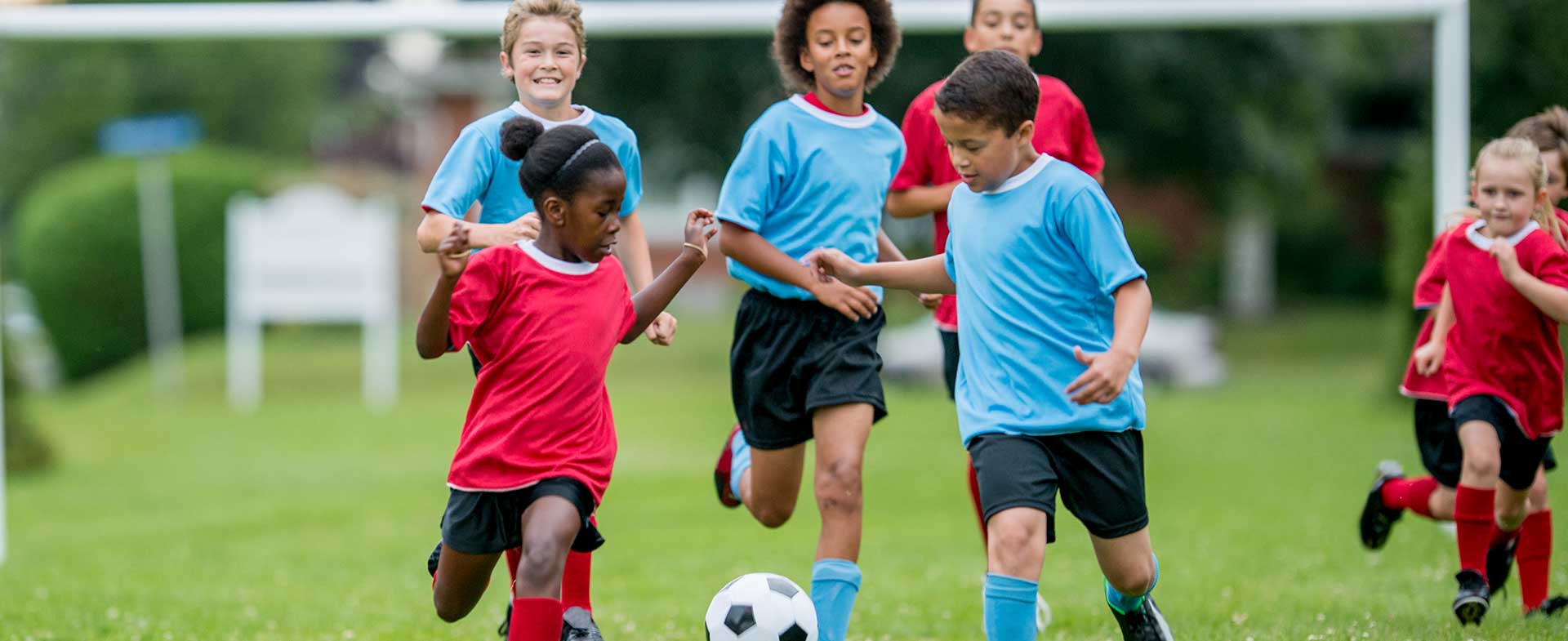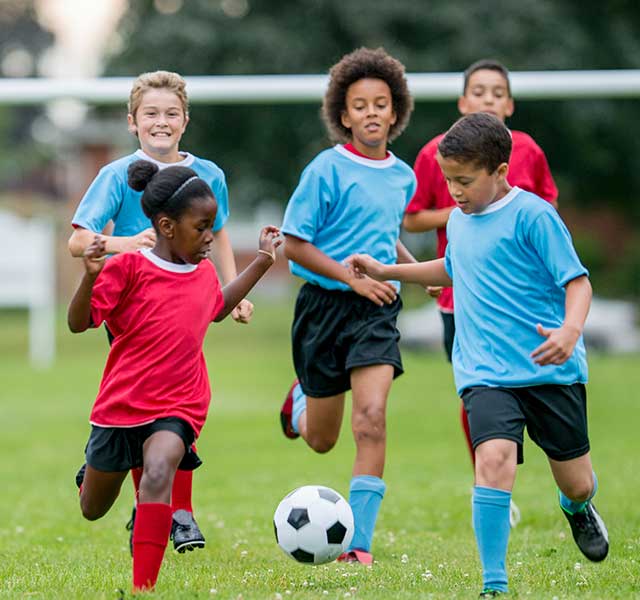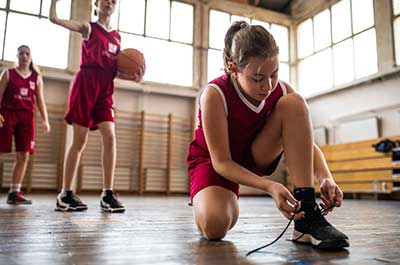Participating in sports is a great way to get kids away from screens while also building in physical activity. But sports have benefits beyond the physical.
“Playing sports also plays an important role in improving mental and emotional health,” says Seth Swary, Ph.D., a sport psychology clinician at Henry Ford Health. “Even physical activity on its own is tied to better mental health, including lower rates of anxiety and depression.”
Sports and Emotional Well-Being
Whether it’s soccer, volleyball or running solo, here are just a few ways sports help enhance kids’ mental health:
Promote self-esteem
Participating in sports can help kids develop a sense of competence and self-esteem. “It’s an opportunity for them to see how hard work can help them overcome challenges,” Dr. Swary says. Kids also learn to recognize their weaknesses and develop strategies to improve their performance, which leads to a sense of accomplishment.
Enhance social ties
Playing a team sport is a great way for kids to make new friends and strengthen the social connections they already have. “Children in organized sports have a built-in support system with their coaches and teammates,” Dr. Swary says. Kids also learn how to work as part of a team, engage in healthy competition and be a good sport—skills that will serve kids well throughout their lives.
Reduce stress
Whether you’re a kid or an adult, playing sports is a healthy way to blow off steam without resorting to doom scrolling on screens. The practice not only reduces stress hormones, but it also releases feel-good chemicals called endorphins. And studies show that playing sports could have a powerful impact on mental health for kids who are going through a tough time. These positive effects may even persist into adulthood, reducing the risk of depression, anxiety and other mental health problems.
Learn life skills
Whether your child chooses an independent sport like track or gymnastics, or a team sport like basketball or lacrosse, sports demand structure and discipline. Children also have to learn how to recover after a setback, which helps them learn resilience.
Parenting Kids Through Sports
To ensure kids have a positive sports experience, Dr. Swary emphasizes that participation should be driven by the child, not the parent. If your child shows interest in sports, take steps to support their involvement, including:

Sport Psychology Clinic
- Be clear about expectations. No matter which sport your child selects, let them know your expectations before you sign them up to participate. So, if they want to play soccer, explain that they need to commit for the entire season, not just a few games.
- Start small. Instead of signing your child up for Little League that might require a 10-hour weekly commitment, choose a recreational team that only holds practices and games once or twice each week. “It’s best to start children in a low-pressure environment so they can test out their chosen sport and develop their skills,” Dr. Swary says.
- Switch things up. Finding a sport your child enjoys may require some trial and error. The good news: Exploring a variety of sports comes with a host of benefits. Not only will it help kids identify which activities they like, it also allows them to (literally) flex different muscles.
- Watch for red flags. If your child suddenly wants to quit a sport they initially loved, talk to them about why. Maybe they don’t get along with their teammates, or maybe the coach is unnecessarily harsh. They might even feel like their sport has become a full-time job. Whatever the reason, it’s important that your child knows they can confide in you, and together, you can troubleshoot.
- Don’t push too hard. As a parent, your goal should be to support your child, not become more invested in the game (or sport) than they are. “Even at the highest level, sports should never be only about winning or losing,” Dr. Swary says. “It’s about having fun and engaging in healthy competition.”
Parents and coaches play important roles in kids’ emotional well-being when it comes to sports. Unreasonable demands and overtraining can crush young athletes. Instead, encourage your child to pursue other hobbies and interests so their identity doesn’t rest only on sports participation.
What If Your Kid Doesn’t Like Sports?
Not every kid wants to participate in sports. If your child has tried several and nothing sticks, view it as an opportunity to identify activities they do enjoy.
“Children who enjoy art or chess can still learn social skills, leadership and resilience through these other activities,” Dr. Swary says. “And they can get the physical activity piece through bike riding, hiking, swimming or shooting hoops with friends.”
Whatever your child’s activity of choice, try to encourage them to become part of a team. Working toward a common goal requires kids to engage with their peers and hone their people skills. Even unstructured play offers kids an opportunity to collaborate and develop rules.
“You shouldn’t judge yourself if your child doesn’t want to play sports,” Dr. Swary says. “But if they are involved in sports, make sure they’re in a supportive environment with their coaches and teammates—and that they’re having fun.”
Reviewed by Seth Swary, Ph.D., a sport psychology clinician at the Henry Ford Center for Athletic Medicine in Detroit.



